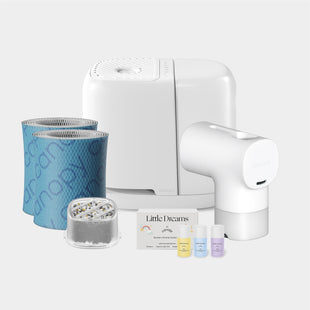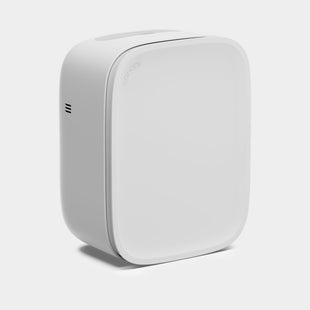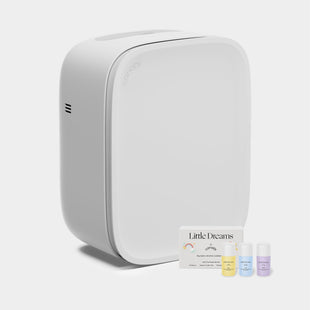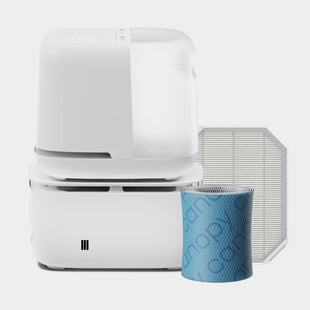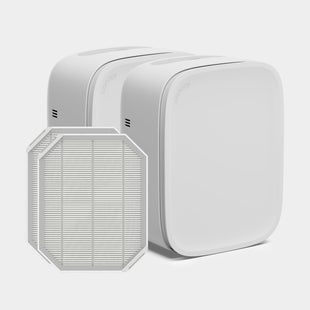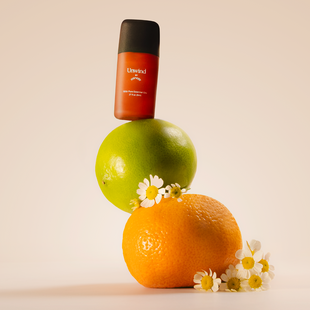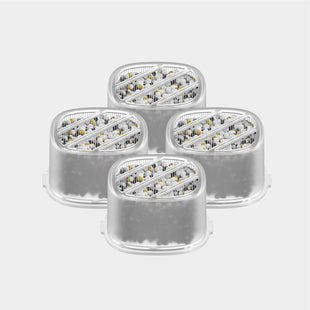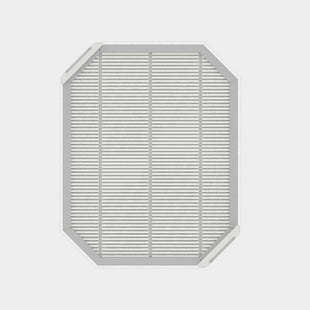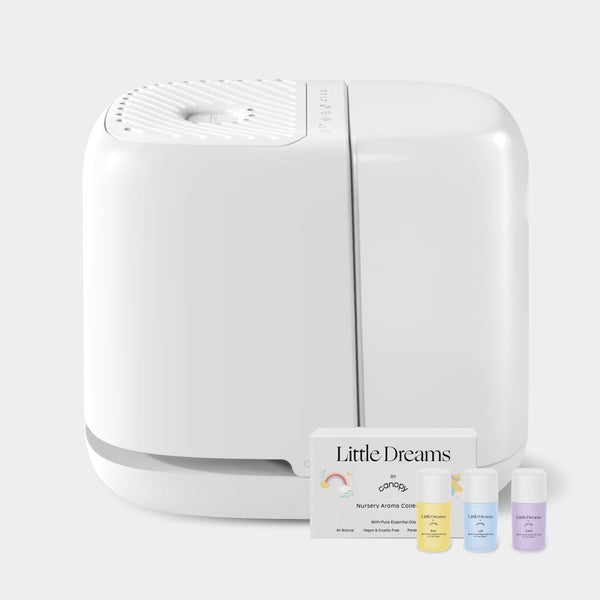Parents must make countless decisions for their babies’ wellness, each calling for careful consideration. While you may already know that air purifiers can be beneficial for adults, you likely also know that babies often have different needs. Therefore, it makes sense to wonder whether air purifiers are safe for babies. Here’s what parents need to know about creating a clean, safe nursery environment.
Babies’ Unique Respiratory Needs
Newborns, infants, and even toddlers have a much smaller lung capacity than adults. This also means they inhale and exhale more frequently. For instance, babies may breathe 40 to 60 times per minute, which amounts to at least twice as many breaths as an adult would take at the same time.
Having a faster breathing rate is natural for newborns, but it could also be problematic if your indoor air quality is less than ideal. Your little one could be breathing in allergens—such as pet dander, dust, and mold—viruses, and bacteria at a quicker rate. Additionally, if you recently gave your nursery a fresh coat of paint or unpacked new furniture, there could be even more indoor pollutants, including volatile organic compounds (VOCs), could also make their way into your child’s lungs.
The Importance of Indoor Air Quality

Having clean, breathable air can make a significant impact on your baby’s overall health. They may experience fewer allergy symptoms, a reduced risk of developing respiratory conditions, and lower chances of developing health issues related to long-term exposure to VOCs and other toxins.
Unfortunately, the U.S. Environmental Protection Agency notes that pollution can be two to five times higher inside the home than it is outdoors. Since you will most likely keep your newborn indoors for the first few months, it is critically important to create the healthiest, most breathable air possible.
Why Should You Use an Air Purifier for Baby Rooms?
Using an air purifier for baby rooms is a simple and effective way to filter out irritants. For example, the right purifier should filter out dust, pollen, mold spores, viruses and bacteria, VOCs, pet dander, and other potentially harmful particles. As a result, the device will create a cleaner, safer environment in which your baby can thrive. With that in mind, it is important to ensure you are purchasing the right type of purifier.
When seeking nursery air purifiers, look for a system with a true HEPA filter and an activated carbon filter. While a HEPA filter can remove 99.97% of particles down to 0.3 microns, an activated carbon filter can remove VOCs and unpleasant odors.
Of course, newborn safety is the topmost priority when buying any new devices. For this reason, you will want to steer clear of ozone-generating air purifiers, also known as ionic air purifiers. These devices emit ozone, which could cause damage to a baby’s eyes, nasal passages, or respiratory system.
Remember, babies are much more sensitive than adults, so even if an ionic air purifier has been deemed safe for adult use, it should be avoided in nurseries and other environments where babies will be present. While some air purifiers with True HEPA filters may have ionizing capabilities, be sure that this feature has an on/off capability to prevent ozone emissions.
Air purifiers are just one solution that can enhance the indoor air quality for your baby. If your air is too dry, it could create the perfect conditions for germs and lead to issues like respiratory issues and eczema. Canopy’s Little Dreams nursery humidifier and large-format Humidifier Plus are specially designed to filter and hydrate for clean, breathable air. The built-in sensors and paper filter prevent mold* growth inside the humidifier and trap contaminants, and the dishwasher-safe parts are easy to take care of.
*Mold inhibition limited to device interior. Does not treat air or environment. 3rd party lab-tested with Aspergillus niger (ATCC 6275, 16404).









